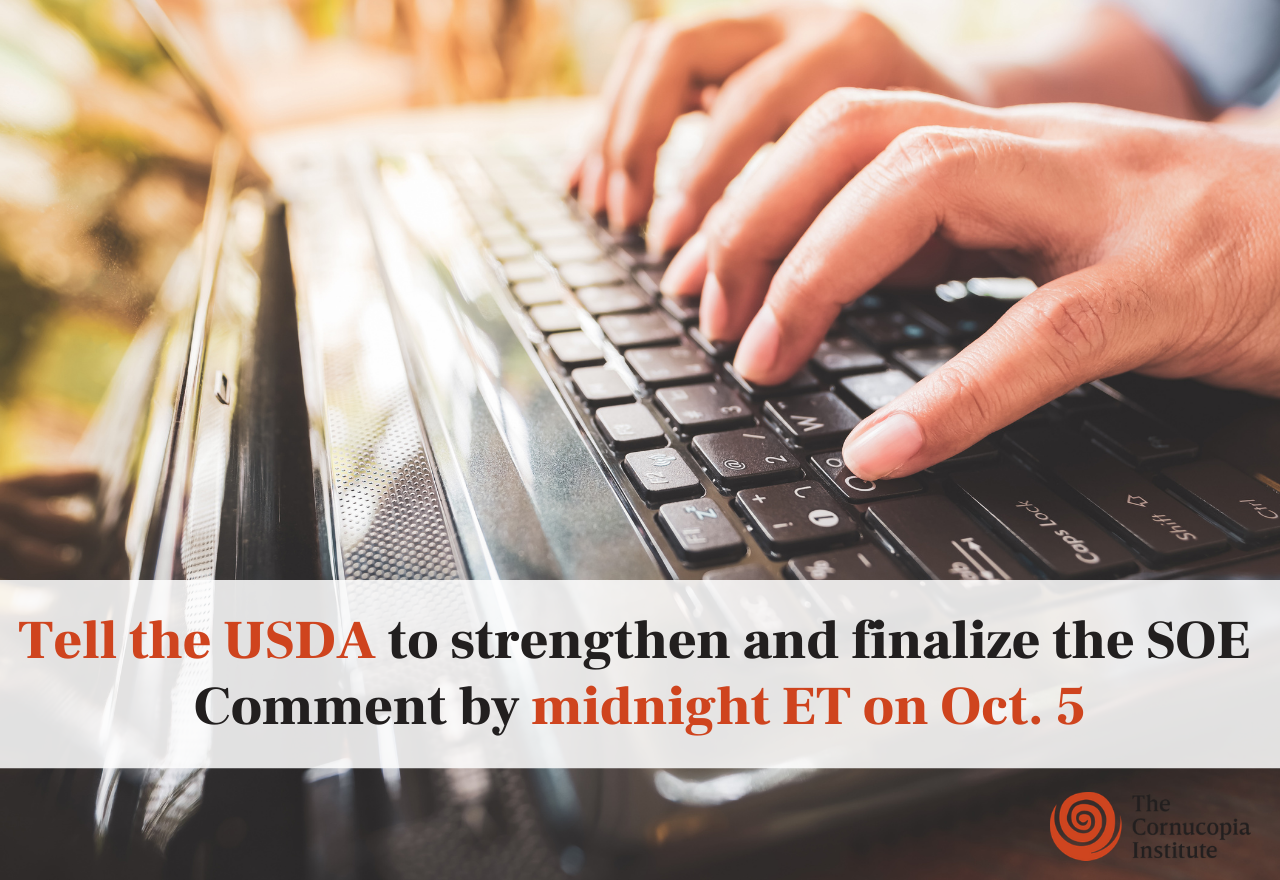Comment by Midnight ET on October 5
The long awaited Strengthening Organic Enforcement Rule is sorely needed, and your help is needed to get a sensible rule to the finish line.
Tell the USDA’s Agricultural Marketing Service (AMS) to strengthen and finalize the SOE.
Cornucopia has been investigating fraudulent organic imports and calling out these illegalities for over a decade, highlighting how bad actors have hurt US farmers and duped trusting consumers.
In response to this call to action from stakeholders, the USDA has drafted a rule that would tighten measures in the organic supply chain, while strengthening existing fraud prevention and fraud identification procedures.
But revision is needed:
As written, the SOE gives exporters 10 days after the products enter the US to upload Import Certificates in the Customs and Border Patrol database.
“With this delay, fraudulently labeled organic feed could make its way to organic livestock barns before the Import Certificates are even available for inspection,” says Cornucopia’s International Policy Advisor Anne Ross, one of the foremost authorities on the investigation into international organic grain fraud. “It will be nearly impossible to recover fraudulent organic goods once they enter the country.”
Cornucopia implores the USDA to require that the certificates accompany shipments presented for entry at US ports.
Your public comments count! Tell the USDA to issue the final rule on Strengthening Organic Enforcement quickly, revised to require Import Certificates to accompany shipments upon arrival at ports. (Learn more about Cornucopia’s efforts to stop imported organic grain fraud.)
Read the proposed rule and submit your comments
(Docket No. AMS-NOP-17-0065)
by 11:59 p.m. ET, October 5, 2020
When commenting, it is best to use your own words. For more on submitting effective comments, read these tips on Regulations.gov.
Your comment could address any of these concerns:
- A final Strengthening Organic Enforcement Rule is needed immediately; delay is harmful to the integrity of the organic industry as a whole.
- The final rule must require that Import Certificates accompany shipments presented for entry at US ports. The draft rule gives exporters 10 days after arrival to upload certificates.
- Large non-retail containers (trailers, tanks, rail cars, shipping containers, grain elevators/silos, vessels, cargo holds, freighters, barges, etc.) must be labeled with the name and contact information of the certified producer of the product, or if processed, the last certified handler that processed the product (this is optional in the draft rule). The label should also bear the instructions “do not fumigate.”
- Certifiers should be required to report product and acreage data in the National Organic Program’s Organic Integrity Database (OID). This data would help regulators ensure the level of imports from high risk regions or products match regional production levels. Cornucopia’s informal calculations of organic grain production in the Black Sea Region in 2018 suggested that far more organic grain was being imported from this high-risk region than could possibly be produced there, given the number of certified organic acres.
Read Cornucopia’s draft comments for more insight into the details of the proposed rule.


